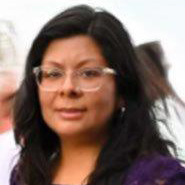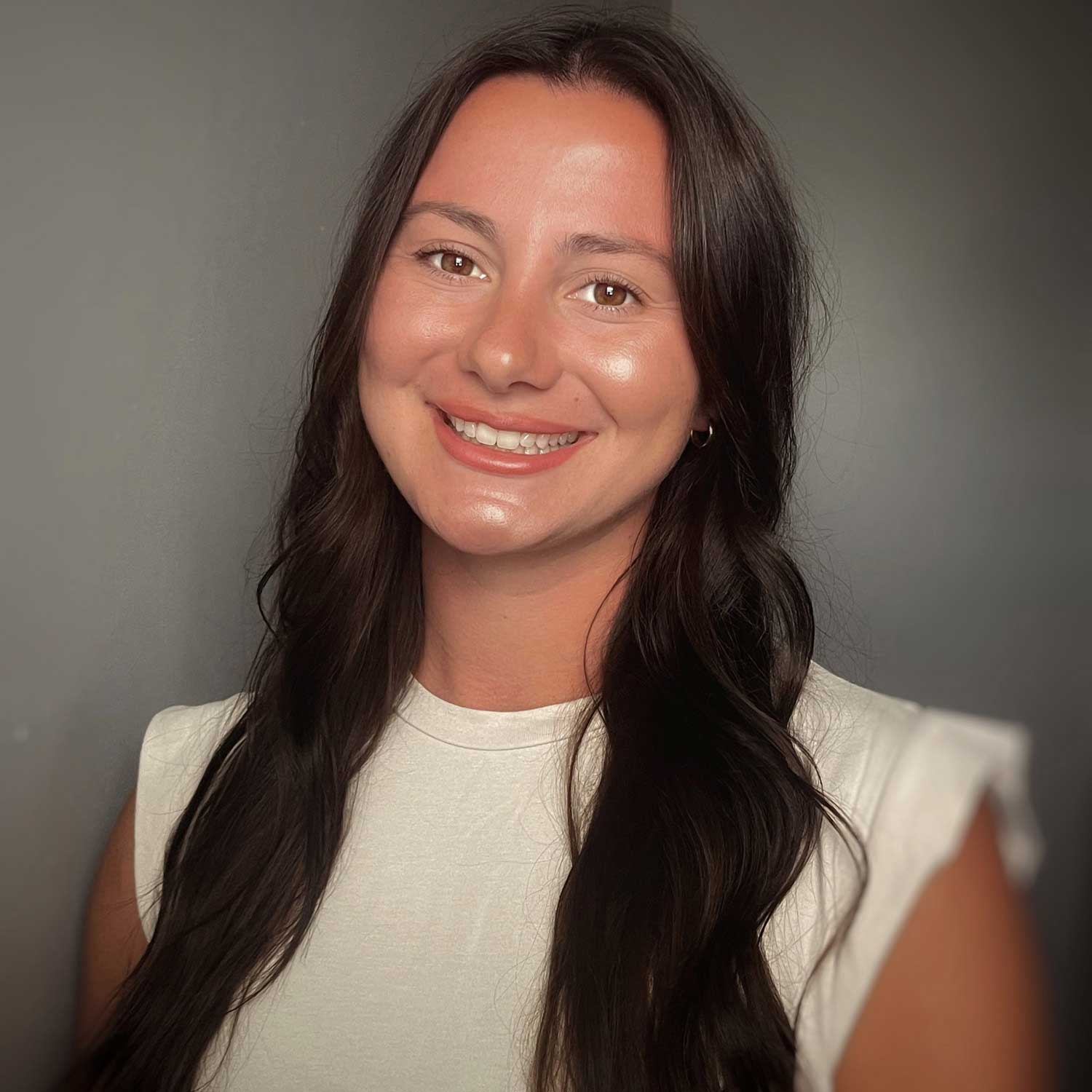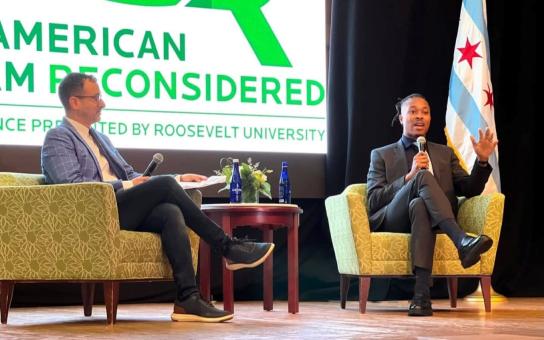
For 50 years, Roosevelt University has offered Paralegal Studies to eager students pursuing careers in legal field. There are a host of opportunities available to paralegals. From law firms to corporations to non-profit organizations, paralegals play an integral role on a legal team. Roosevelt’s commitment to providing equitable access to education has led to graduates having fulfilling careers in this exciting industry. Two of those graduates, Norma Damián and Jessica L. Melnik, were eager to share their experiences with prospective students.

Norma Damián entered Roosevelt’s Paralegal Studies program with many years of experience in the legal field. A Chicago native, Damián initially received her bachelor’s degree in business management while working full-time as a legal secretary during the day at a Workers’ Compensation law firm. Right away, she knew she wanted to obtain her master’s degree, but she hadn’t settled on what to study. Years later, she began working at a law firm as a legal secretary. There, she was exposed to numerous types of law, including real estate, probate, property tax appeals, domestic relations, personal injury and estate planning. She briefly attended law school before deciding to pause her studies. Damián knew she had an interest in the law, but didn’t feel that becoming a lawyer was the right fit. According to Damián, “My boss at the time remarked on how great I was doing, and suggested I get a paralegal certificate. Ten to fifteen years ago, that wasn’t a requirement, but today it’s much more necessary.” Eventually, she left the law firm and began working at a bank. Soon, a position in the legal department became available, but it was here Damián realized that she would need her paralegal certificate to be considered, even with all of her years of experience. Her journey to Roosevelt began at this bank.
“One of the paralegals I worked with mentioned that she had gone to Roosevelt, and she so well-prepared. I really admired how she handled herself, the knowledge that she had, and the different ways that she interacted with the attorneys. As the department was growing, another paralegal was hired, she also went to Roosevelt. They both loved the program, and they all mentioned professor Jim Fine. That was when I decided to reach out.”
For 41 years, Jim Fine has been professor of Paralegal Studies at Roosevelt. In addition to his full-time teaching position at the university, Professor Fine continues a private litigation, estate planning and bankruptcy practice. Most recently, Fine spearheaded an initiative to launch Roosevelt’s on-campus Legal Clinic to provide university community members and underserved Chicago residents with legal services at reduced rates. Professors like Jim Fine are the reason students choose Roosevelt, and graduates encourage others to attend. For Damián, Professor Fine was just one faculty member that impacted her experience. Director of the Paralegal Studies Program Carrie Lausen was also instrumental to Damián’s success. Damián says, “Carrie was great from the first conversation we had. Immediately, she asked me about my goals, and together we laid out my path through the program.” Damián is also grateful to professor Mark Solock for how he “broke down the legal documents” in classes, which made it easier for inexperienced students to understand. According to Damián, the class sizes were small and diverse, which allowed her to make friends she’s still close with today. Damián graduated in 2019 and has continued her career as a successful paralegal. She also serves on the Alumni Steering Committee for the program, which allows her to come back to the university and share her insight with current students. For any prospective students, Norma Damián wants them to know that “the paralegal certificate will open a lot of doors, and Roosevelts program will help you figure out exactly which doors you want to walk through.”

For alumni Jessica L. Melnik, the path to paralegal studies took a different route. A family member encouraged Melnik to become a paralegal, but at the time she wasn’t familiar with the career. Today, she explains it like this: “A paralegal is to a lawyer what a nurse is to a doctor. We are an instrumental part of any legal team.” While researching programs, Melnik says Roosevelt had a table set up at a career fair at her community college. A transfer admissions counselor helped her set up an appointment with Lausen and Chanita Britton, the Assistant Director of the Paralegal Studies program. Together, they helped Melnik transfer to Roosevelt for her junior year, where she completed her bachelor’s degree in paralegal studies as well as her ABA-approved Paralegal Certificate. “I was always told that your professors are like your mentors, and that’s who you want to go for.” She continues, “I also loved that the class sizes were very small, and how helpful each of the professors were. They really want you to succeed.” One of those professors was Lisa Iverson. “She made the classes exciting, and now I speak to her paralegal studies students every year. She’s a real mentor of mine.” Another faculty member integral to Melnik’s experience was her Legal Writing professor Bruce Slivnick. “He was so knowledgeable and approachable. He never made me feel like I was asking a dumb question, and really helped me feel less anxious.” Like Damián, Melnik was also able to make close friends while at Roosevelt. “I actually met my best friend in this program, and now we talk every single day.” Today, Melnik is working as a successful Litigation Paralegal in intellectual property law. Her position began as an internship secured with the help of Roosevelt’s program. Melnik also serves on the advisory board of the Paralegal Studies program and enjoys meeting to discuss ways to bolster the program. For anyone considering Roosevelt’s Paralegal Studies program, Melnik has this to say:
“Roosevelt is a place full of people who want you to succeed as both a student and in your career. The class sizes help you form collaborative relationships with professors who really care. The whole community is involved with fundraisers and initiatives that speak to the University’s social justice mission. I love where I’m at now, and I’m grateful to Roosevelt for helping me get there.”


